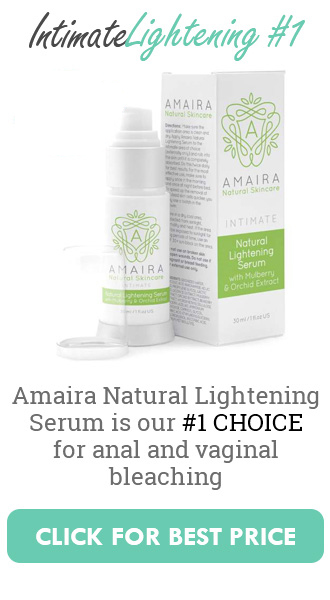Skin lightening can provide a great boost in confidence, and has skyrocketed in popularity for a good reason. Whether we like it or not, even skin tones are considered a trait of beauty, and more and more people are dropping their inhibitions and embracing their desire to look better – ideally according to their own standards.
And skin lightening doesn’t always mean brightening a darker skin tone. In fact, the majority of people use skin bleaching products to even out their uneven skin tone. The nature of human skin is such that when our skin gets damaged, it tends to get darker, nor lighter. We are all familiar with darkened elbows, darkened noses due to sunburn, darkened knees, darkened underarms, private areas, and so on and on. And that’s exactly what skin lightening products can help you correct.
However, while skin bleaching is great for most people, there are also exceptions that should prevent you from using it. By default, the process of skin lightening can also cause irritation or provoke a reaction from people with allergies, so it’s definitely not recommended for everyone.
This is even more true for people who have certain skin conditions, because those outcomes can be much more severe and prevalent. As such, it is definitely not advised to use bleaching and lightening products when the following skin conditions are present.

What Is Skin Bleaching?
But first, the basics. What exactly is skin bleaching?
Skin bleaching is a popular method to lighten the skin through the use of different creams and products. The products use a combination of ingredients to help with lightening the skin tone after frequent exposure and continued use.
Many people report desirable results after using skin lightening products. But it’s not all sunshine and roses – others have reported adverse outcomes. It is those adverse outcomes, and the people who should be careful about them, that we will address in this article.
For example, a recent study in Senegal documented the adverse effects of skin bleaching, predominantly in people with pre-existing skin conditions. It concluded that skin bleaching was a public health problem in the country, due to the popularity of the method, and the sheer volume of people who used it. Even people with existing skin conditions were giving it a try, and the results were less than elating (to put it mildly).
Just like with everything else, the process of bleaching your skin is not for everyone — and that’s perfectly fine! If you have a pre-existing skin condition and are concerned about your skin after using a bleaching product, keep reading.
Click Here to Read our Review of Amaira
Harmful Ingredients Lead to Harmful Results
Things are sometimes really simple. The number one cause for irritation from bleaching products is – their irritating ingredients. In this day and age, there are plenty of safe and naturally-based skin care products, but sadly this is not always the case.
The market is also filled with products that take risks with your skin. Sometimes the motive is expediency, sometimes its profit. But when a product promises to bleach your skin in 2 days (and it may very well do so) chances are you’re in for some prolonged pain and suffering.
And that’s what would happen to people with healthy skin. But if you have a skin condition?
Ouch!
Here are the ingredients you have to avoid: hydroquinone, steroids, mercury, and tretinoin. The presence of one – or sometimes more – of these chemicals can lead to many adverse effects detailed below.

So, what exactly do those ingredients do? While the intentions are noble and meant to hasten skin lightening results, these chemicals and their impact include:
- Steroids that can lead to hormonal imbalances. These imbalances can cause issues with your moods and sleep cycles, stress level, cause you headaches and so on.
- Hydroquinone can cause redness and burning sensations, which is further exacerbated when certain skin conditions are present.
- Mercury can lead to poisoning when used over an extended period of time. It can also cause liver and kidney damage that can sometimes be irreparable. Unfortunately, mercury has been detected in some non-reputable skin whitening creams, which is why it is always important to use a quality lightening cream.
- Tretinoin is an ingredient that was originally used for acne treatment. It has since been found that it can have harmful effects when used in excessive amounts or more importantly, combined with the other ingredients on this list.
This is not to say all bleaching products are unsafe. As we mentioned previously, not all products are created equal and some do use gentle and safe ingredients, like Amaira (which we reviewed here). This is where the importance of research comes into play, because it can save you a lot of trouble.
What Can Go Wrong?
If the pandemic has trained us to do anything extraordinarily well, that’s definitely the ability to weigh risks. Some of you are probably thinking, “Well, just how bad can these side effects be? Perhaps it pays off if I achieve the desired results.” So let us inform you on the risks, so you can make an informed decision while weighing them.
Of course, everything could go just right and you may not experience much more than a mild and passing inconvenience. In an ideal world, you could achieve the perfect shade of skin. However, under certain circumstances that will not be the case, and some factors make that more likely than not.
Using a skin bleaching product can lead to:
- Irritation
- Inflammation (swelling and redness)
- Sensations of burning
- Itchiness
- Skin, liver, kidney, or nerve damage
- Uneven complexion or hyperpigmentation if applied incorrectly
- Abnormalities for newborn infants if used while pregnant
- If exposed to the eyes, corneal damage is possible
This list is not comprehensive, and there may be other side effects not listed here. Of course, not everyone will experience any or (God forbid) all of these symptoms. But these outcomes are much more likely if you have any of the skin conditions listed in the next section.
Four Skin Conditions That Are Not Compatible with Bleaching
Keeping the adverse effects and harmful ingredients in mind, here are some of the skin conditions that make bleaching your skin a big no-no:

- Acne
As we mentioned, some bleaching products use some harsh chemicals. Sometimes the combination of those chemicals does more harm than good when used improperly. According to that study from Senegal, women with acne experienced worsened skin after bleaching it.
This is the result of irritation caused by the chemicals and the burning sensations experienced after using the bleach. Long story short: having an active acne breakout is not compatible with skin lightening and is not advised.
- Dermatitis
You’ve probably heard the term “dermatitis” by now. Basically, it is any kind of inflammation of the skin that can be caused by various factors. As an umbrella term, it also contains many specific kinds of dermatitis, such as contact dermatitis which causes red or pinkish skin rashes. If your skin is red or pink and itches, chances are you probably have dermatitis. If you’re less lucky, it will also be too dry and flake, or moist and weepy.
Needless to say, people with dermatitis should not use lightening products. You can’t lighten your skin when it’s not even healthy or functioning properly.

young woman with closed eyes touching face with acne isolated on beige
- Eczema
Eczema is another very common skin condition where areas of skin will swell, redden, itch, crack, and roughen over time. This happens because skin cells are unable to retain the necessary moisture, which leads to inflammation, which leads to itching.
The cause of eczema is unknown. Typically, those with eczema share common traits such as hereditary or hormonal factors, or exposure to environmental factors.
Irritants for eczema include chemicals, like those found in skin bleaching products. Often, the chemicals in scented products or products that contain artificial coloring can also act as irritants.
Some bleaching products also cause steroids (hormones) that can cause a hormonal imbalance and further exacerbate the skin condition. It’s definitely a bad idea to use skin lightening products if you have eczema.
- Allergies
Allergic reactions are another good reason to avoid skin bleaching products. When it comes to the skin, this isn’t limited to having allergic reactions to the actual products but expands to include common allergies, polen, trees, nuts, foods, and more.
For example, if you are allergic to strawberries and accidentally ingest them in some form, the allergic reaction looks differently than that from using bleaching products. Whereas the reaction may subside after one antihistamine dose, allergies on the skin might require higher doses of antihistamines because, to the ingested medicines, the skin is more difficult to reach.
Either way, if you find yourself at risk from non-skin-related allergic reactions, or anticipate an allergic reaction to the ingredients in the bleaching product, do not use them.
Click Here to Read our Review of Amaira

What’s the Bottom Line?
In short: always do your research. Especially if you happen to have any of the skin conditions listed here. This rule doesn’t only hold true for skin lightening products, but for almost any kind of skincare product. Know what you are putting on your skin before you actually do it, and if necessary, consult a professional.
Also, keep in mind that this is not a comprehensive list of skin conditions but – due to brevity – highlights some of the most common ones. However the precautions hold true for almost any other skin condition. For example, should you use a skin bleaching product if you have skin cancer? Hard no, but in that case we trust you are already provided with professional medical guidance.
If you anticipate or experience adverse effects after using bleaching products, consult your doctor, dermatologist, or another licensed medical professional.
The purpose of skin lightening products is to achieve a desired shade of skin, but not at the cost of your health and well-being. You don’t want to stress out your skin, yourself, and not even achieve the outcome you hoped for!
Your health should always be your number one priority, so use skin-bleaching products safely. If you want to know more about how to safely and properly lighten your skin, check out our other articles.

